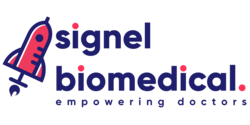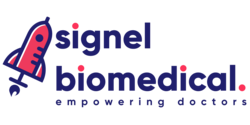
The field of healthcare is constantly evolving, and medical professionals are always on the lookout for innovative devices that can enhance patient care and improve diagnostic accuracy. In recent times, India has witnessed the introduction of several cutting-edge medical devices that have revolutionized the way doctors diagnose, treat, and manage various medical conditions. This article highlights ten such innovative medical devices that are currently available in India. From advanced imaging systems to wearable technology, these devices are designed to empower doctors with the latest medical technology and improve healthcare outcomes.
1. Robotic Surgical Systems
Robotic surgical systems enable doctors to perform minimally invasive surgeries with enhanced precision and control. These devices, such as the da Vinci Surgical System, allow surgeons to operate with smaller incisions, reduced blood loss, and faster patient recovery.
2. Artificial Intelligence (AI) Diagnostics
AI-powered diagnostic tools leverage machine learning algorithms to analyze medical data and assist doctors in accurate and faster diagnoses. These devices can analyze complex imaging scans, pathology slides, and patient data to aid doctors in making informed decisions.
3. Wireless Vital Sign Monitoring
Wireless vital sign monitoring devices allow doctors to remotely monitor a patient's vital signs, such as heart rate, blood pressure, and oxygen saturation. These portable devices provide real-time data, enabling doctors to monitor patients more effectively, especially in non-hospital settings.
4. Smart Inhalers
Smart inhalers combine inhalation devices with digital technology to help doctors and patients manage respiratory conditions more effectively. These devices track medication usage, provide reminders, and collect data on inhaler technique and adherence.
5. Telemedicine Solutions
Telemedicine platforms and devices facilitate remote consultations, enabling doctors to connect with patients virtually. These solutions have become particularly valuable during the COVID-19 pandemic, allowing doctors to provide medical care while minimizing physical contact.
6. Advanced Imaging Systems
Advanced imaging systems, such as 3D mammography, high-resolution ultrasound, and spectral CT scanners, provide doctors with detailed and precise imaging for accurate diagnoses. These devices enable doctors to detect and diagnose medical conditions at earlier stages.
7. Wearable Health Monitoring Devices
Wearable devices, such as smartwatches and fitness trackers, have evolved to include health monitoring capabilities. These devices can track heart rate, sleep patterns and activity levels, and even detect irregularities, allowing doctors to gather valuable insights into their patients' overall health.
8. Point-of-Care Testing Devices
Point-of-care testing devices enable doctors to conduct diagnostic tests rapidly and efficiently at the patient's bedside. These portable devices provide immediate results for various tests, such as blood glucose levels, cholesterol levels, and infectious disease markers.
9. Robotic Exoskeletons
Robotic exoskeletons assist doctors in rehabilitation therapy for patients with mobility impairments. These devices provide support and assistance to patients, allowing them to regain mobility and improve their overall quality of life.
10. Smart Pill Dispensers
Smart pill dispensers use technology to improve medication adherence. These devices can dispense medication at the right time and provide reminders, ensuring patients take the correct
Medical technology is rapidly advancing, and doctors in India now have access to a range of innovative medical devices that are revolutionizing healthcare. From AI diagnostics to remote monitoring and surgical robotics, these devices empower doctors to deliver more precise diagnoses, personalized care and enhanced patient outcomes.
As technology continues to evolve, it is essential for doctors to stay updated on the latest advancements to provide the best possible healthcare to their patients. By embracing these innovative medical devices, doctors can embrace the future of medicine and make significant contributions to the well-being of patients in India.













